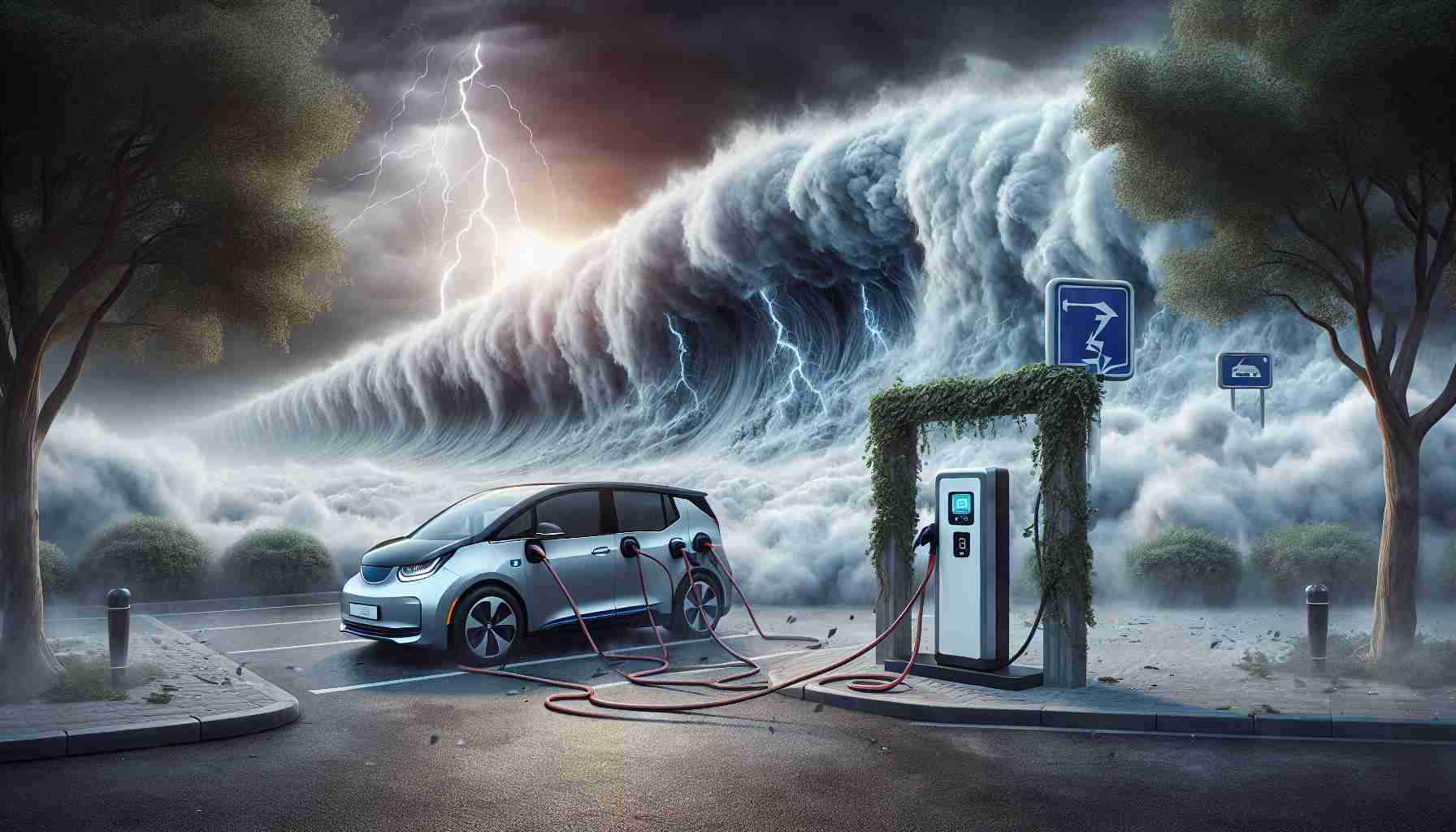- The Trump administration has suspended federal funding for electric vehicle chargers, significantly impacting the EV landscape.
- This decision reverses the National Electric Vehicle Infrastructure Formula Program, which aimed to install chargers nationwide with a $5 billion budget.
- States and tech firms now face uncertainty regarding their investments in EV infrastructure due to the withdrawal of federal support.
- Industry leaders express concern that this policy shift could hinder the development of a necessary charging network for electric vehicles.
- The future of electric vehicles in America is now uncertain, raising questions about sustainable transportation and federal involvement.
In a bold move, the Trump administration has halted federal funding for electric vehicle (EV) chargers, shaking the automotive landscape once again. This decision marks a pivotal shift, echoing one of Trump’s earliest promises upon returning to office—to dismantle the climate-friendly initiatives set by his predecessor.
The U.S. Department of Transportation’s Federal Highway Administration (FHWA) recently knocked the wind out of EV advocates by suspending the National Electric Vehicle Infrastructure (NEVI) Formula Program. This program, established under Biden’s bipartisan infrastructure law, promised a substantial $5 billion over five years to install chargers nationwide, helping to increase the acceptance of electric cars. With federal backing withdrawn, states and tech firms now face a fog of uncertainty regarding their investments in what was deemed a critical infrastructure.
Industry leaders are expressing deep concern over the repercussions of this abrupt policy reversal. With billions at stake, the chaos could stymie efforts to build a robust charging network essential for the future of American highways and the EV market.
Meanwhile, high-profile figures in the EV world, including Tesla’s CEO, are grappling with the ramifications of this funding freeze. Trump’s statement at the Republican National Convention about eliminating electric vehicle mandates underscores his commitment to reshaping the EV landscape.
The key takeaway? The future of electric vehicles in America now hangs in the balance, as a battle brews over sustainable transportation and federal support. Will this decision ignite further controversies, or pave the way for a new era in the automotive industry? Only time will tell.
Shocking Shift: Trump’s Funding Freeze on EV Chargers and Its Consequences
Overview of the Situation
The Trump administration’s recent decision to halt federal funding for electric vehicle (EV) chargers has sent ripples through the automotive sector. This move has significant implications for the future of electric vehicle infrastructure in the United States, effectively putting a halt to the National Electric Vehicle Infrastructure (NEVI) Formula Program, which was established under the previous administration’s bipartisan infrastructure law.
Key Insights and Trends
# New Market Trends
1. Investment Uncertainty: With the elimination of the NEVI funding, private investors and tech firms are reassessing their strategies concerning EV infrastructure, leading to potential slowdowns in new projects and installations.
2. Shifts in Policy Direction: Trump’s aggressive approach signals a potential return to fossil fuel dependency and could hinder the Biden administration’s clean energy goals.
3. State-Level Initiatives: States may need to ramp up their efforts independently to fund EV charging networks, leading to a fragmented charging ecosystem across the nation.
Pros and Cons of the Funding Halt
# Pros:
– Reduced Federal Spending: This decision could free up federal resources for other initiatives.
– Increased Private Sector Role: The private sector might take over charge infrastructure development, potentially sparking innovation.
# Cons:
– Increased EV Adoption Barriers: Lack of charging infrastructure may deter potential electric vehicle buyers.
– Market Instability: Uncertainty about federal backing could freeze new investments and stall technological advancements.
Questions and Answers
Q1: What are the anticipated impacts on EV adoption rates due to this funding freeze?
A1: The halt in funding may lead to slower adoption rates for EVs, as potential buyers often cite range anxiety and lack of charging infrastructure as significant barriers to purchasing electric vehicles.
Q2: How might states respond to fill the gap left by federal funding?
A2: Many states may initiate their own funding programs or collaborations with private entities to develop charging networks, though their ability to do so will vary based on budget and legislative support.
Q3: What innovations in EV charging technology could emerge in response to these policy changes?
A3: The need for effective charging solutions may spur advancements in fast-charging technology, wireless charging systems, and smart grid integrations to optimize energy use.
Future Predictions
– Increased Polarization: The split in federal policy may deepen the divide between pro-EV and pro-fossil fuel factions within the government and public.
– New Business Models: Expect to see innovative business models emerging as private firms look to leverage charging technology and service delivery.
– Focus on State-Level Solutions: With federal support dwindling, initiatives that consolidate state efforts in infrastructure development may become more prominent and essential.
Suggested Related Links
– U.S. Department of Energy
– U.S. Environmental Protection Agency
– U.S. Department of Transportation
This recent policy change epitomizes a critical moment in the evolution of electric vehicles in America, forcing stakeholders to reconsider their strategies under an unpredictable regulatory landscape.













